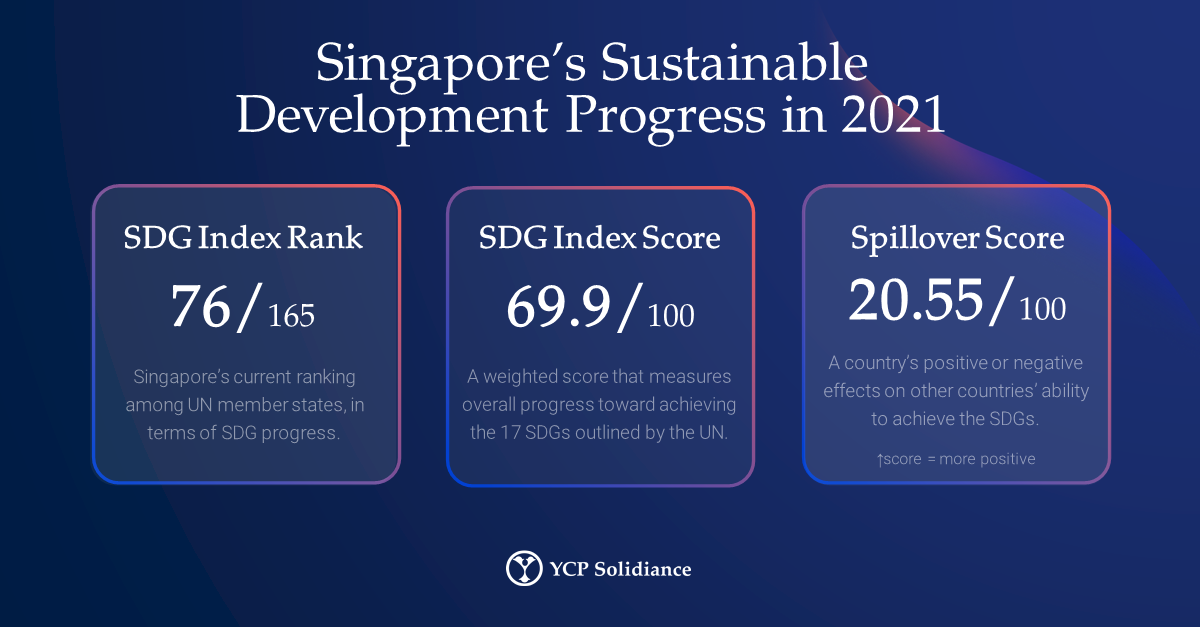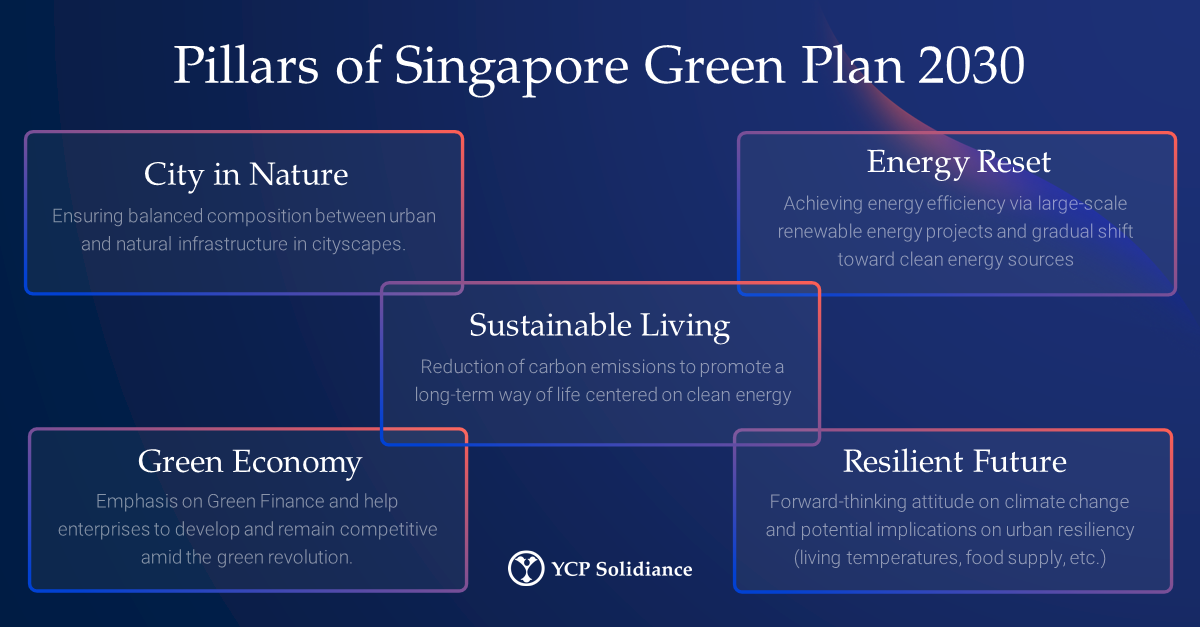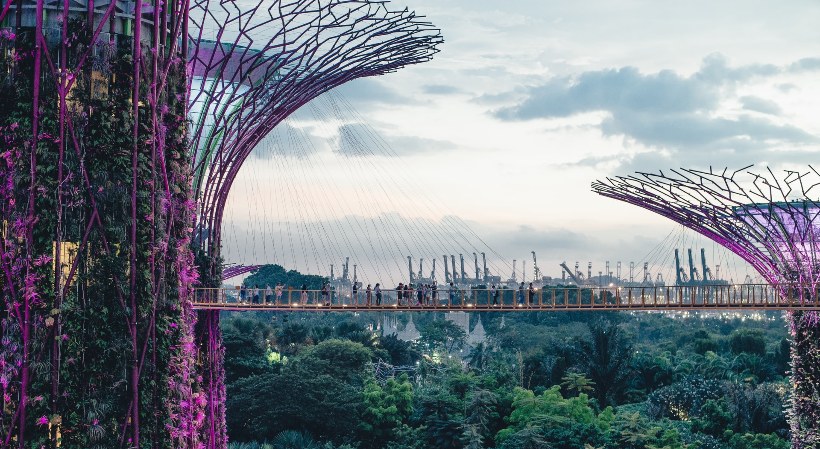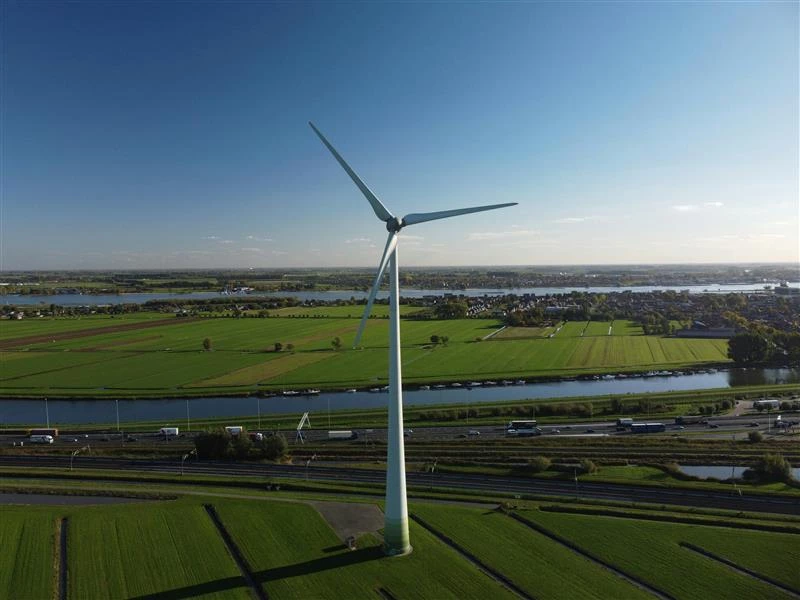What should Singaporean businesses and professionals expect this 2022? As part of a new insights series, YCP Solidiance will be releasing several in-depth articles that feature emerging business trends in Singapore, guided by research and analysis from our team of professionals in the country.
Read the fourth installment below to understand how Singapore is prioritizing sustainability within the country, and how companies will continue to play a major part in 2022. To read the other articles featured in this series, subscribe to our newsletter here.
In Southeast Asia, the trend of rapid urbanization has caused issues in relation to the environmental landscape within the region. To combat these adverse effects, over the last few years, there has been a greater emphasis on promoting sustainability in several dimensions (energy, food, technology, etc.) throughout ASEAN.
As demonstrated by the ongoing implementation of Green Plan 2030, the positive shift in awareness regarding environmental sustainability is evident in Singapore. Like previous years, expect that businesses in 2022 will also be heavily influenced by the trend of sustainability.
Guided by Green Plan 2030
Officially launched in February 2021, the Singapore Green Plan 2030 is a strategic framework that was created to promote the country’s mission of catalyzing sustainable development. In line with the United Nation’s Sustainable Development Goals and the Paris Agreement, this initiative is also guided by five key pillars, namely: City in Nature, Energy Reset, Green Economy, Resilient Future, and Sustainable Living.
The success achieved by the Green Plan 2030 will be dictated by progress in multiple sectors, such as education and governance, which also includes business and relevant stakeholders. For example, the tech industry will need to facilitate research and development of new technologies and methods that promote sustainable development. One such instance can be found in 2019 when Singapore developed the NEWater process, which is essentially the treatment and recycling of wastewater. 
Further Investment and Regulating ESG
To ensure sustained development, Singapore has launched several related initiatives that aim to catalyze sustainable growth among businesses. Specifically, Singapore has committed 130 million USD to the Enterprise Sustainability Program – an initiative that aims to help domestic businesses (SMEs most especially) develop their capabilities in the green economy. Over the next four years, the ESP is projected to help approximately 6,000 businesses via workshops, financing, etc.
As Singapore continues to bank on businesses to not only participate but also promote sustainability, there is a growing opportunity for involved stakeholders to capitalize. Supporting sustainable development within Singapore will benefit society as a whole, but more importantly, it can also put businesses in a position that is forward-thinking. Thus, given that the Singaporean government continues to invest in the implementation of Green Plan 2030 and other related initiatives, expect sustainability to be a major trend in both the private and public sectors.
For more insights subscribe to our newsletter and read similar reports on sustainability:




